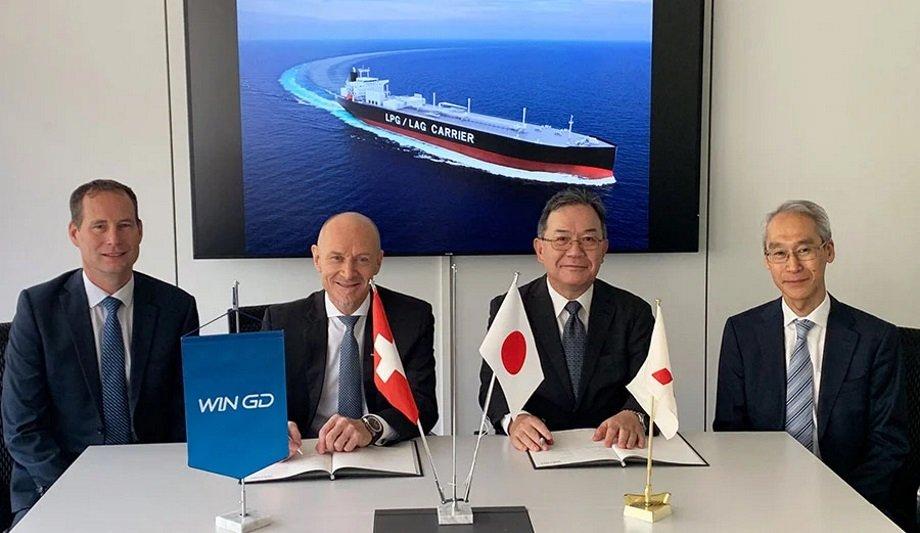Mitsubishi Shipbuilding Co., Ltd., a part of Mitsubishi Heavy Industries (MHI) Group, has agreed to undertake technical studies on an ammonia fuel supply system for large, low-speed two-stroke marine engines under development by Winterthur Gas & Diesel AG (WinGD), a Swiss designer of large marine engines.
The signing ceremony of the memorandum of understanding (MOU) was held at WinGD Headquarters in Switzerland on June 2.
Maritime system integrator
WinGD is currently developing ammonia-fueled large, low-speed two-stroke marine engines dubbed type
The newly concluded MOU reflects both companies desire to contribute to the achievement of the International Maritime Organization's (IMO) decarbonisation target in the maritime industry's greenhouse gas (GHG) emissions. WinGD is currently developing ammonia-fueled large, low-speed two-stroke marine engines dubbed type ‘X-DF-A.’ Mitsubishi Shipbuilding will now work with WinGD in studying the technologies for developing and commercialising the ammonia fuel supply system for the X-DF-A engines.
Ammonia, which emits no CO2 when combusted, is garnering attention as a fuel that contributes significantly to the reduction of GHG emissions in the maritime industry, and it is expected to be utilised as a stable, clean energy in the future.
Going forward, Mitsubishi Shipbuilding, aligning with MHI Group's strategy of advancement of the energy transition, will apply its technologies and expertise in ammonia handling accumulated through its long history of building transport carriers. As a maritime system integrator, the Company will promote decarbonisation of the maritime industry and pursue a low-carbon society, contributing to reduction of environmental impact on a global scale.










